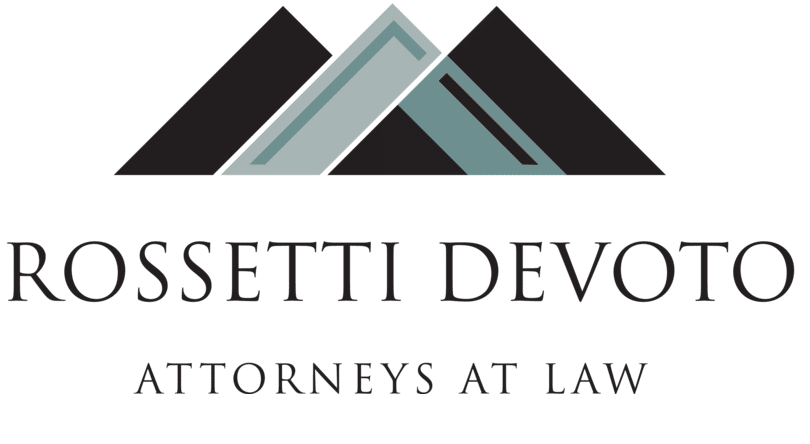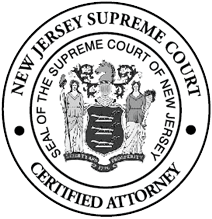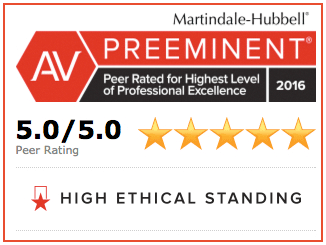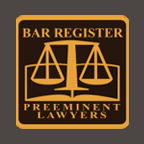Wrongful Death FAQs
1. What is a wrongful death and survivorship lawsuit?
In New Jersey, a wrongful death lawsuit is the legal term applied to a lawsuit that claims that someone died as a result of the negligent, wrongful and/or intentional acts of another. The lawsuit consists of two parts: a survival action and a wrongful death action. The survival action allows recovery for the deceased person’s injuries until death. These damages may include conscious pain and suffering, medical bills up until death, and any lost wages from injury up until death. Punitive damages may also be recoverable. Any proceeds recoverable under this part of the case will get distributed to the heirs in accordance with the deceased person’s will. If there is no will, there is a law which determines how much each heir can recover.
The wrongful death action is the part of the case that allows the heirs of the deceased to recover for their losses that are associated with the death. These losses typically include the economic value of the loss of guidance, advice, support as well as lost companionship and security. Lost wages are also recoverable. However, the mental anguish for losing a loved one is not recoverable under this act. Some examples of these economic losses are:
- Lost earnings of the deceased person
- Lost care, guidance, advice and support
- Lost inheritance in some cases
- Funeral expenses
- Hospital expenses after death
- Lost prospective earning capacity
- Lost value of household chores
- Lost companionship,
- NOT RECOVERABLE: grief, mental anguish, etc…
2. Who can bring a Wrongful Death Act and Survival Act lawsuit in New Jersey?
The Survivorship claim (pain and suffering of the decedent) is brought by the Executor or the General Administrator, if a person dies without a Last Will.
The persons authorized by law to bring a wrongful death claim is sometimes different than the persons who are entitled to recover. The person usually authorized to bring the claim is the Executor if the person died with a will or the Administrator ad Prosequendum if the person died without a will.
N.J.S.A. 2A:31-2 provides:
Every action commenced under this chapter shall be brought in the name of an administrator ad prosequendum of the decedent for whose death damages are sought, except where the decedent dies testate and his will is probated, in which event the executor named in the will and qualifying, or the administrator with the will annexed, as the case may be, shall bring the action.
3. Who is entitled to recover in a survival claim and wrongful death case in New Jersey?
In the survival claim, the proceeds are distributed in accordance with the Last Will of the decedent. If there is no will, the proceeds are distributed in accordance with the laws of New Jersey for a person who dies without a will. The distribution of money will depend on who is left surviving the deceased person.
In wrongful death cases, the persons most likely to recover include the spouse, children, parents, etc. of the deceased person. Others may be entitled to recover depending on the facts of each case. At the end of a case, if a verdict or settlement is achieved, the survival portion of the case is distributed according to the will and if there is no will, according to state laws.
The wrongful death portion requires a judge to hold a hearing to apportion the proceeds from the recovery among all potential takers based on dependency and other factors.
N.J.S.A. 2A:31-4 states:
The amount recovered in proceedings under this chapter shall be for the exclusive benefit of the persons entitled to take any intestate personal property of the decedent and in the proportions in which they are entitled to take the same. If any of the persons so entitled were dependent on the decedent at his death, they shall take the same as though they were the sole persons so entitled, in such proportions, as shall be determined by the court without a jury, and as will result in a fair and equitable apportionment of the amount recovered, among them, taking into account in such determination, but not limited necessarily thereby, the age of the dependents, their physical and mental condition, the necessity or desirability of providing them with educational facilities, their financial condition and the availability to them of other means of support, present and future, and any other relevant factors which will contribute to a fair and equitable apportionment of the amount recovered.
4. Are there any time limitations in which to file a lawsuit after someone dies as a result of another’s negligent or wrongful act?
Generally, a good rule of thumb is that a wrongful death lawsuit must be filed within two years of the death. However, factual situations vary and you must see an attorney if you want specific advice on when to file a lawsuit.
5. Does the law firm represent all potential heirs in a wrongful death and survivorship lawsuit?
No, the law firm represents the Executor, General Administrator and/or the Administrator ad Prosequendum in their representative capacity only. It is the job of these individuals to act on behalf of and protect all of the interests of the heirs once a recovery is obtained.
6. What happens if a person dies without a will?
A designated family member is usually appointed as General Administrator and Administrator ad Prosequendum to handle the estate matters of the deceased person and/or to prosecute a lawsuit on behalf of the heirs of the estate.
7. Does the will affect how any money recovered is distributed in a wrongful death and survivorship lawsuit?
In New Jersey, the will only controls how the money from the survival action (usually the decedent’s conscious pain and suffering) is divided. The money recovered under the wrongful death portion for the heirs is distributed based on state law for persons who die without a will. Who recovers, in large part, is based on dependency to the decedent. A judge will apportion the money among potential takers based on their dependency.
8. Who has the right to settle the case?
The administrator ad prosequendum or executor who files the claim on behalf of the heirs has the right to settle the case on behalf of all heirs. This person is the designated representative who acts on behalf of all heirs. The individual heirs do not each have a say in whether to settle the case.
9. Are punitive damages recoverable in these cases?
Punitive damages are recoverable in a death case in New Jersey but the punitive damages can be limited or capped by other laws that apply.
10. Does an autopsy need to be performed in order to bring a wrongful death and survivorship case?
Although an autopsy is very helpful in proving the alleged wrongful act caused a person’s death and we strongly recommend autopsies after all deaths that resulted from a wrongful act, an autopsy is not required to bring a wrongful death claim.
11. If I think a relative or loved one died as a result of another’s negligence, what should I do?
If you think someone had died as a result of someone else’s fault, you should contact an attorney to discuss the appointment of an administrator if there is no will. If there is a will you should have the executor/executrix come with you to meet the attorney who will initiate an investigation of all potential claims. In all cases, it is also helpful to obtain an autopsy.
12. Who decides how the proceeds from a wrongful death and survival claim settlement or verdict are going to be divided between the heirs?
In New Jersey, a judge will apportion the lump sum award among the viable takers. The court may appoint guardians if minors are involved.
The executor or administrator does not have the power to decide how to divide the proceeds.
13. Is the emotional pain and suffering from losing a loved one a recoverable element of damages?
In New Jersey, emotional suffering from the death of a loved one is not recoverable. However, if you witnessed the wrongful act you may be entitled to bring a negligent infliction of emotional distress claim. This is very complicated claim with many limitations and should be discussed with an attorney.
14. Does the law limit how much money can be recovered in a wrongful death and survivorship lawsuit?
New Jersey law does not limit the compensatory amount of damages recovered in a wrongful death lawsuit. The survival claim must be based on damages awarded for the conscious pain and suffering of the decedent and the damages awarded for wrongful death must be based on pecuniary (economic) value of the services that would have been provided to the heirs had the death not occurred such as lost wages, guidance, advice, support and companionship.
15. Are wrongful death and survival proceeds part of the deceased’s estate?
In New Jersey, the wrongful death portion of the recovery is not part of the estate and is distributed without regard to decedent’s Last Will and Testament. In addition, wrongful death proceeds are not taxable as part of the estate. The survival proceeds are part of the decedent’s estate and there may be tax consequences involved for the estate.









